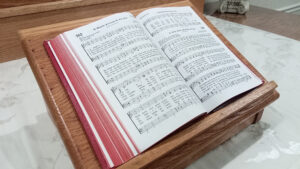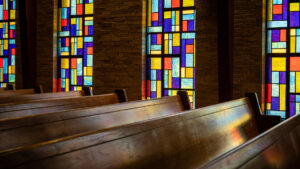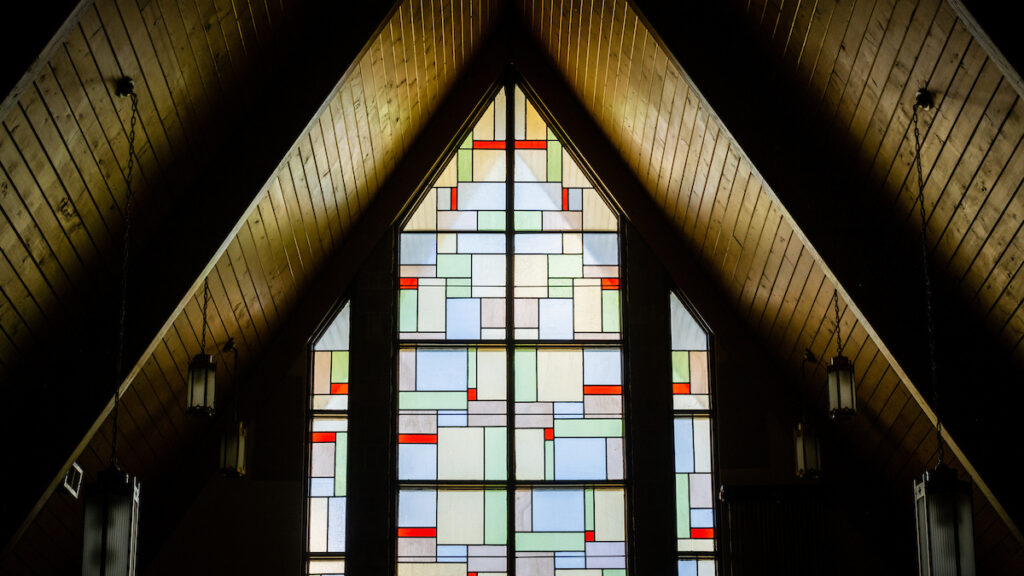In an era of flashy productions, contemporary praise bands, and ever-changing worship trends, traditional worship often seems like an old relic. But beneath its historic veneer lies a richness and depth that continues to resonate with believers across generations. For many, traditional worship—rooted in the hymns, prayers, and liturgical patterns of centuries past—provides a spiritual anchor in a world spinning with uncertainty.
If you’ve ever wondered why traditional worship still holds such appeal, here’s an exploration of its timeless beauty and enduring relevance.
A Deep Connection to History and the Church Universal
 One of the most compelling aspects of traditional worship is its connection to the historic Christian Church. The liturgy, hymns, and prayers used in traditional worship aren’t just beautiful; they’re a bridge to the past. When you sing “A Mighty Fortress Is Our God” (The Lutheran Hymnal, #262) or recite the Nicene Creed, you’re joining your voice with countless saints across centuries who’ve confessed the same faith.
One of the most compelling aspects of traditional worship is its connection to the historic Christian Church. The liturgy, hymns, and prayers used in traditional worship aren’t just beautiful; they’re a bridge to the past. When you sing “A Mighty Fortress Is Our God” (The Lutheran Hymnal, #262) or recite the Nicene Creed, you’re joining your voice with countless saints across centuries who’ve confessed the same faith.
The liturgy’s structure is rooted in Scripture and shaped by centuries of careful reflection. From the Gloria in Excelsis to the Agnus Dei, these elements are not arbitrary but have been tested, refined, and cherished over time. In this way, traditional worship connects us to the "one holy, Christian, and apostolic Church" (Nicene Creed), reminding us that our faith is not new but deeply rooted in the saving work of Jesus Christ.
Rich Theology in Hymns and Prayers
Traditional worship doesn’t shy away from weighty theological truths. Take hymns, for example. Unlike much of contemporary Christian music that focuses on personal feelings or vague spirituality, traditional hymns are packed with Scriptural truths and confessions of faith.
Consider the hymn “Rock of Ages, Cleft for Me” (The Lutheran Hymnal, #376). It teaches us about Christ’s atonement, His righteousness, and our complete dependence on Him for salvation. Or think of “O Sacred Head, Now Wounded” (The Lutheran Hymnal, #172), which draws us into the suffering and sacrifice of Jesus on the cross. These hymns aren’t just catchy—they’re catechetical, embedding biblical doctrine into our hearts and minds.
Prayers in traditional worship also reflect this theological depth. The Collects (short prayers assigned to specific Sundays) are masterpieces of concise yet profound theology. They teach us to approach God in reverence, confess our need for His mercy, and trust His promises.
Order Amid Chaos
 Life is chaotic. Our schedules are packed, the news is overwhelming, and we often feel pulled in a thousand directions. Traditional worship offers a respite from this frenzy by providing a structured, predictable order.
Life is chaotic. Our schedules are packed, the news is overwhelming, and we often feel pulled in a thousand directions. Traditional worship offers a respite from this frenzy by providing a structured, predictable order.
The liturgy is consistent—week after week, season after season. We confess our sins, hear God’s forgiveness, listen to His Word, sing His praises, and receive His gifts in the Lord’s Supper. This rhythm isn’t monotonous; it’s comforting. It reminds us that while the world changes, God’s Word and promises remain the same.
In a sense, the liturgy is like a spiritual heartbeat. Its repetition grounds us in what matters most: Christ crucified and risen for the forgiveness of our sins.
Engaging the Whole Person: Heart, Mind, and Soul
Traditional worship is often criticized for being too formal or emotionless. But in reality, it engages the whole person—heart, mind, and soul.
The beauty of the music stirs the heart. The thoughtful, Scripture-based readings and sermons challenge the mind. And the sacramental focus feeds the soul. This holistic approach mirrors the command to love the Lord with all your heart, soul, mind, and strength (Mark 12:30).
For example, when we sing “Lift Up Your Heads, Ye Mighty Gates” (The Lutheran Hymnal, #73), our hearts are moved by the melody, our minds meditate on the truth of Christ’s coming, and our souls are strengthened by the hope of His return.
A Counter-Cultural Witness
In a world obsessed with innovation and self-expression, traditional worship stands as a counter-cultural witness. It says, “We’re not here to entertain you; we’re here to worship God.”
This focus on God—not the preferences of the congregation—can be jarring in our consumer-driven age, but it’s profoundly refreshing. Traditional worship reminds us that we are not the center of the universe. Instead, we gather as the people of God to receive His gifts and give Him praise.
This humility aligns with the biblical understanding of worship. As Psalm 115:1 says, “Not unto us, O Lord, not unto us, but to Your name give glory.”
Passing the Faith to Future Generations
 One of the great strengths of traditional worship is its role in passing the faith to the next generation. The words and melodies of traditional hymns have a staying power that sticks with us. How many of us can still sing hymns we learned as children or remember the comforting cadence of the Lord’s Prayer?
One of the great strengths of traditional worship is its role in passing the faith to the next generation. The words and melodies of traditional hymns have a staying power that sticks with us. How many of us can still sing hymns we learned as children or remember the comforting cadence of the Lord’s Prayer?
By worshiping in a traditional setting, we’re giving our children and grandchildren a rich spiritual inheritance. We’re teaching them not only how to worship but also the truths of the faith that sustain us in life and in death.
The Gospel at the Center
At its heart, traditional worship is about the Gospel. The liturgy leads us through the story of our salvation—from our confession of sin to the absolution, from the proclamation of God’s Word to the feast of forgiveness in the Lord’s Supper.
Every element points to Christ. The hymns proclaim His victory. The creeds confess His identity. The prayers cry out for His mercy. This Christ-centered focus ensures that we leave worship not merely entertained or inspired but strengthened by the assurance of His love and forgiveness.
Tradition Speaks Because It’s Timeless
Far from being outdated or irrelevant, traditional worship continues to speak to the soul because it points us to the timeless truths of God’s Word. It connects us to the Church of the past, nourishes us in the present, and prepares us for the future.
As the psalmist says, “O come, let us sing to the Lord! Let us shout joyfully to the Rock of our salvation” (Psalm 95:1). Whether you’re new to traditional worship or have been attending for decades, its enduring beauty and depth remind us that the God we worship is the same yesterday, today, and forever (Hebrews 13:8).
So next time you hear the strains of an old hymn or recite the ancient liturgy, remember: this is no relic. It’s a lifeline, a treasure, and a testament to the unchanging grace of our Lord Jesus Christ.
If you’re longing for a deeper connection to God through timeless worship, we invite you to join us at Immanuel Lutheran Church in Winter Haven, FL. Come and experience the beauty, depth, and Christ-centered focus of traditional hymns and liturgy. Learn more about who we are and what we believe by visiting our Home Page.

